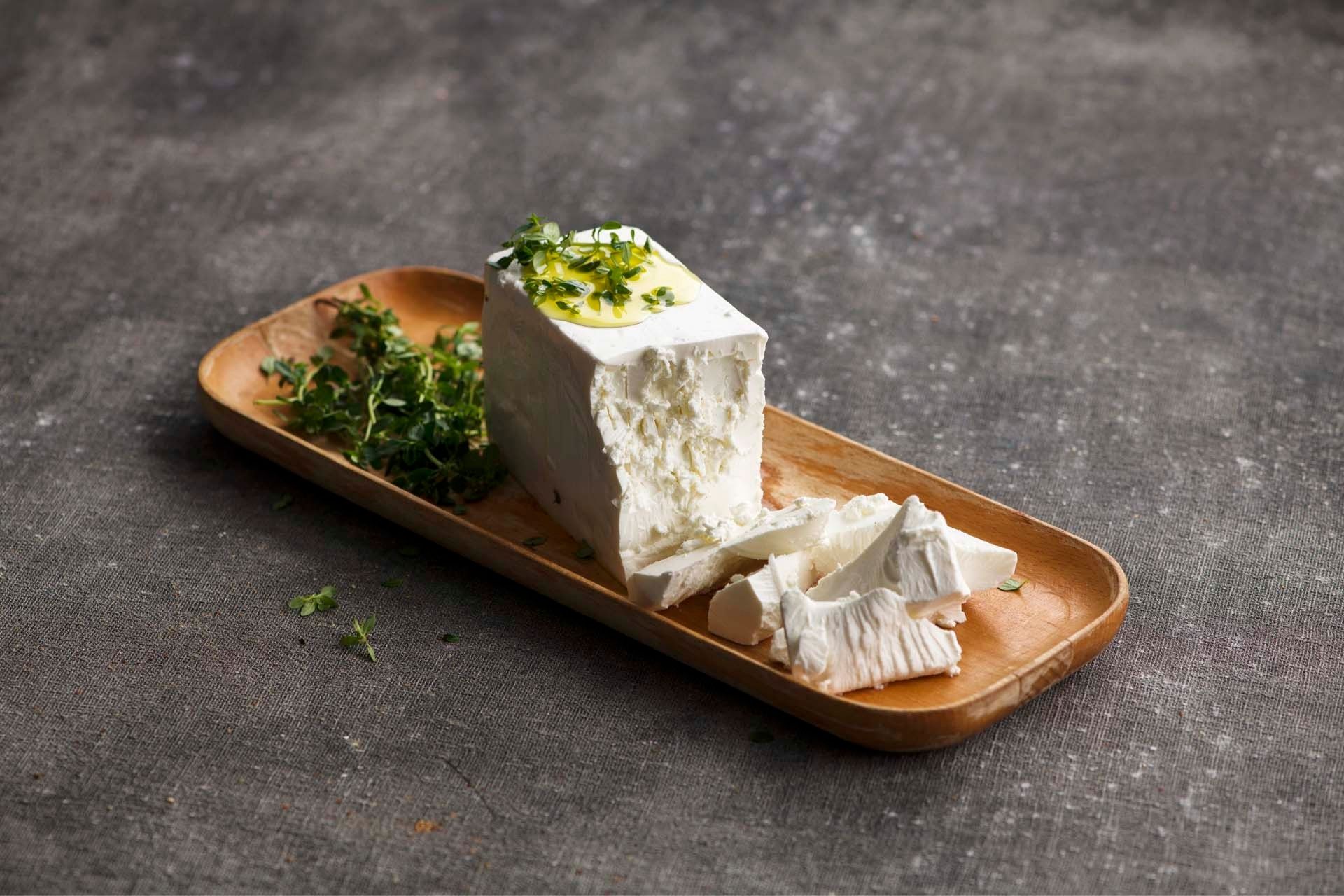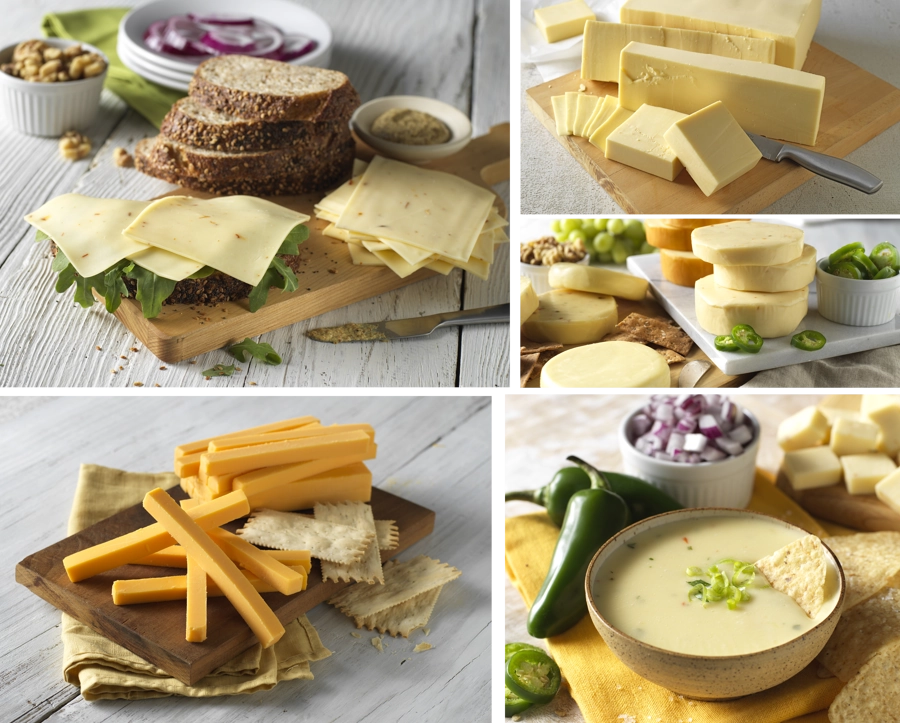Discover the Best Cheese Makers Melbourne for Craftsmen Delights
Discover the Best Cheese Makers Melbourne for Craftsmen Delights
Blog Article
A Thorough Consider Cheese Manufacturing: Components, Techniques, and the Future of Artisan Cheeses
The elaborate process of cheese production is a remarkable merging of art and scientific research, where high-quality milk, rennet, and specific microbial cultures offer as fundamental aspects. As the market increasingly focuses on sustainability and openness, the future of artisan cheeses guarantees to reflect both heritage and progress.
Trick Ingredients in Cheese Production
A variety of important active ingredients play a crucial role in cheese manufacturing, each adding to the final item's flavor, structure, and personality. The primary active ingredient in cheese is milk, which can come from various resources, including cows, goats, and lamb - cheese factory melbourne. The kind of milk utilized dramatically influences the cheese's taste and consistency; as an example, cow's milk commonly generates creamier cheeses, while goat's milk commonly generates zesty varieties
Another vital component is rennet, an enzyme used to curdle the milk, separating it into curds and whey. The source of rennet can be animal, veggie, or microbial, each imparting distinct qualities to the cheese. Cultures, including particular pressures of germs, are also indispensable to the cheese-making procedure. They ferment lactose right into lactic acid, assisting in flavor growth and structure.
Salt not just boosts the flavor however also works as a chemical, hindering the growth of unfavorable bacteria. Additionally, numerous flavor representatives, such as herbs, seasonings, or even smoked wood, can be contributed to create distinct artisanal cheeses. Together, these ingredients develop the structure of cheese production, setting the stage for diverse and rich cheese ranges.
Conventional Cheese-Making Strategies
Using traditional cheese-making strategies, artisans all over the world preserve time-honored methods that have been given via generations. These techniques frequently stress making use of high-quality, in your area sourced milk, which is central to the one-of-a-kind flavors and textures of artisanal cheeses. The process commonly begins with the cautious heating of milk, complied with by the enhancement of cultures and rennet to help with coagulation.
Once the curds form, they are cut, allowing whey to drain pipes, an important action that affects moisture web content and appearance. Salting is a necessary element of this procedure, enhancing taste while likewise acting as a chemical.
Aging, or affinage, is an additional crucial component, throughout which cheeses develop their particular aromas and preferences. Craftsmens may utilize certain maturing settings, utilizing humidity and temperature controls to refine the cheese's account. The dedication to these typical approaches not just supports local economies however likewise adds to the abundant variety of cheese selections located worldwide, commemorating social heritage and artisanal craftsmanship.
Modern Technologies in Cheese Production
How have technical innovations transformed cheese manufacturing recently? The integration of contemporary innovation has actually reinvented both the efficiency and quality of cheese manufacturing. Automation in numerous stages of the procedure-- from curd development to packaging-- has actually boosted uniformity while lowering labor expenses. For example, automated curd reducing and stirring systems allow for precise control over structure and moisture degrees, vital elements affecting the final item.
Additionally, developments in microbiology have actually allowed cheesemakers to choose details microbial cultures and enzymes, enhancing taste profiles and boosting life span. Making use of sensing unit modern technology for keeping an eye on fermentation problems has actually also come to be prevalent, allowing for real-time modifications to keep optimal atmospheres for cheese aging.

These innovations not just enhance the quality and sustainability of cheese production yet likewise equip artisan manufacturers to keep standard flavors while embracing modern-day performance. As modern technology remains to progress, the future of cheese manufacturing looks promising, mixing custom with advancement.
The Function of Terroir in Cheese
In the realm of cheese manufacturing, terroir plays a crucial duty in specifying the distinctive features of numerous cheeses. Terroir, a French term commonly connected with a glass of wine, includes the environmental aspects that affect agricultural items, consisting of soil make-up, climate, and regional flora and animals. In cheese-making, the special qualities of the region where the have a peek at this website milk is sourced can convey details tastes and appearances to the end product.
For example, the grazing problems of dairy products pets substantially influence the milk's make-up, influenced by the sorts of turfs and herbs offered in a certain locale. This varies not just in between nations but likewise in between regions within the exact same nation. Additionally, the microbial neighborhoods existing in the environment add to the fermentation processes, bring about diverse accounts in flavor and scent.
Cheeses such as Roquefort, Parmigiano-Reggiano, and Cheddar exemplify exactly how terroir can form their identities, making them unique and frequently shielded by geographical indications. As manufacturers progressively identify the importance of terroir, there is an expanding emphasis on sourcing neighborhood active ingredients and maintaining traditional techniques, guaranteeing that each cheese really shows its origin.

Future Patterns in Artisan Cheeses
A noteworthy shift is taking place in the artisan cheese market, driven by progressing consumer preferences and technical developments. Progressively, customers are being attracted towards special, high-quality items that stress both sustainability and local sourcing - cheese makers melbourne. This pattern is triggering artisan cheesemakers to innovate, concentrating on small-batch manufacturing and the usage of standard techniques while integrating modern-day innovation to boost top quality and security
Moreover, there is a growing passion in plant-based and different milk items, pushing conventional cheesemakers to check out brand-new methods, such as cashew or almond-based cheeses. This shift not only deals with dietary constraints however additionally straightens browse around these guys with ecological issues pertaining to pet agriculture.
Furthermore, openness in sourcing and production processes is ending up being paramount. Customers are more informed and need traceability, triggering manufacturers to take on clearer labeling methods and involve in narration that highlights their approaches and values.
Verdict
To conclude, the intricate process of cheese manufacturing combines standard strategies with modern-day developments, leading to a varied selection of tastes and appearances. The emphasis on high-grade active ingredients and the influence of terroir emphasize the artistry involved in cheese production. As the market advances, an emphasis on sustainability and transparency will likely shape the future of artisan cheeses, accommodating a significantly discerning customer base that values credibility and craftsmanship in dairy items.
Report this page